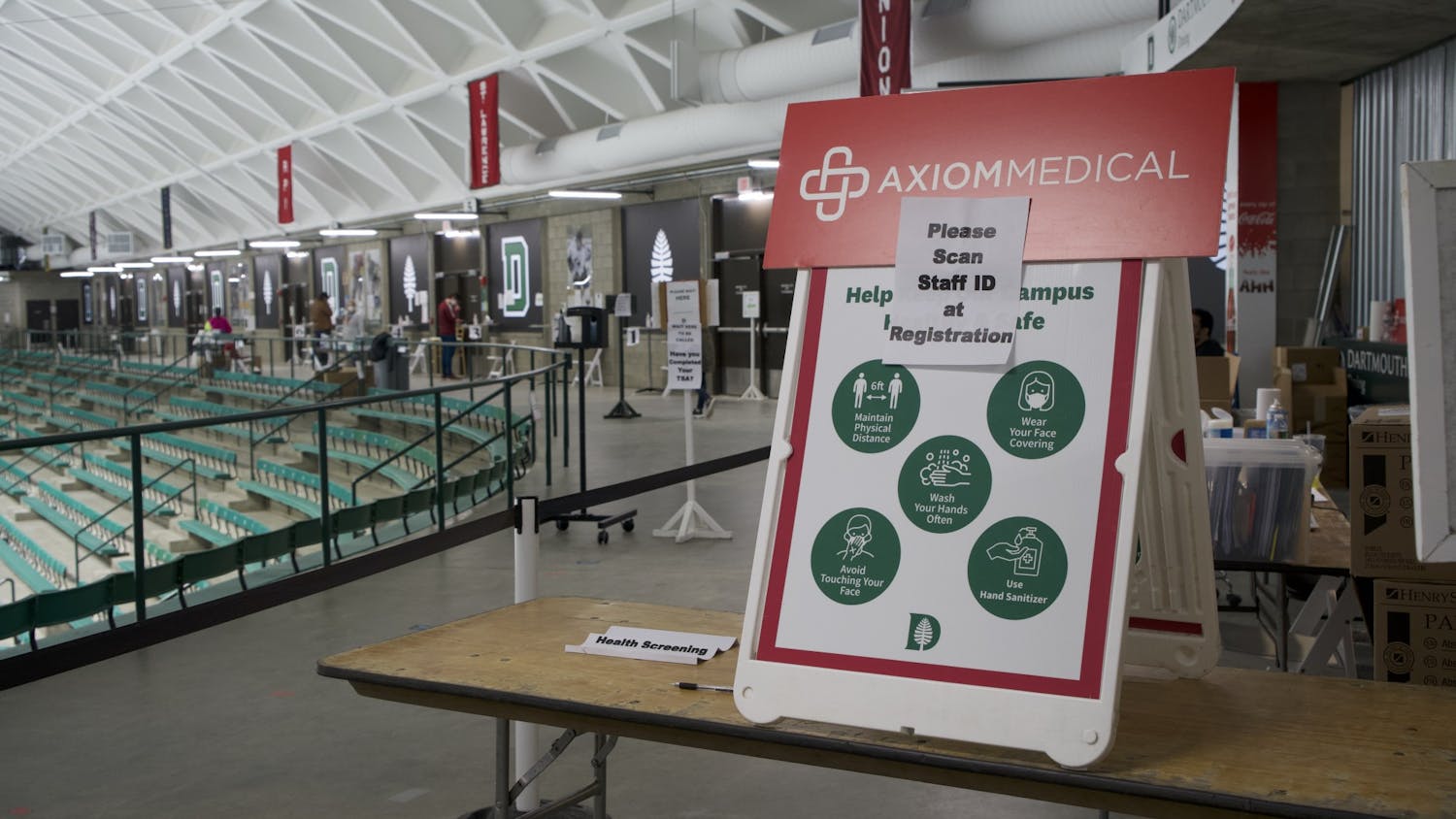The campus outbreak in late February — which peaked at 143 active student cases and coincided with an onslaught of final assignments — prompted many students to consider leaving campus early in order to escape a restrictive environment and potential COVID-19 infection.
Roughly 200 students have notified the College that they have left campus over the last two weeks to finish the term elsewhere, according to Dean of the College Kathryn Lively. Though the active case count has decreased in recent days and the College eased restrictions on Monday, many students chose to leave beforehand.
Maya Nguyen ’24, who left last Friday, felt that campus had become unsafe, and with finals quickly approaching, she said the restrictions threatened her ability to work.
“I was pretty concerned about the coronavirus outbreak, and I also felt with all the campus facilities being closed that it just wasn’t worth it to stay on campus,” Nguyen said. “I decided I would rather be at home, where A — I am safe from the virus, and B — I am in a better place mentally to get my work done.”
Allan Wang ’24, who said he is considering leaving in the next few days, agreed that the restrictions make campus life difficult. With study spaces closed and dining to-go only, he said he does not see much point in staying.
As case numbers decrease and restrictions ease, he said he is questioning his departure plan, but the growing number of other students leaving means he will likely follow his initial intention.
“[Dartmouth easing restrictions] definitely made me consider staying the full way through, but the fact that [many] people have already committed to leaving early means I would be stuck mostly alone,” Wang said.
While limited social interaction, coronavirus concerns and exam season are reasons to go, some students are unable to leave.
Ben Traugott ’24, an international student, said that he has decided not to leave early due to travel restrictions and expenses. However, he noted that he does not think he would go home even if he had the opportunity.
“Even though it is hard to work here given the restrictions, it is also hard to work at home,” Traugott said.
In an effort to prevent the spread of COVID-19 beyond Dartmouth’s campus and keep track of students, the College has laid out departure guidelines for students leaving mid-term.
Dartmouth recommends that students test 48 hours before leaving, receive a negative test result 24 hours before leaving and email Undergraduate Housing and the Dean of the College to notify them of their departure. The College monitors testing compliance for students with on-campus access, so the College is aware of whether or not students are in the area.
In the fall, when the term also ended with a slight uptick in cases and students left in response to restrictions, no such procedure existed. Lively confirmed that the College did not implement a departure protocol in the fall.
“Frankly, it just didn’t occur to us,” she said.
Lively noted that prior to the pandemic, students did not tend to leave during the term without letting the College know, so it was not an issue the College had previously encountered.
“When we realized that it was a trend — that it was actually happening frequently — we decided that we should establish guidelines and move forward using them in the winter and in the spring,” Lively said.
Leah Zamansky ’24, who is from Durham, New Hampshire, discovered she had a potential exposure to COVID-19 a few days before fall term ended and in consultation with Dick’s House, decided to drive home and quarantine for two weeks in her room at home. She wanted to avoid living in quarantine housing, as she had heard a lot of students struggled with mental health due to isolation. She added that she hoped to avoid any additional housing or food costs associated with staying past the end of term.
While she departed safely and responsibly, she said she saw other students making riskier decisions at the end of fall term.
“I think that it is one thing for students to do what I did and talk it through with Dick’s House nurses and decide with their families to do it in a safe way,” Zamansky said. “… The other option, which I saw a lot of students doing, [was] where they found out they might have been a close contact, and they just left because they didn’t want to be in the quarantine dorms, without really telling anyone.”
Although Zamansky sympathized with their motivations, she said she wanted to “at least make sure [she] got a negative test before leaving and possibly spreading [COVID-19] to [her] community.”
Lively said that a similar number of students left over the fall term compared to those who have left this term. She noted that quarantined students who left in the fall without consulting with Dick’s House were contacted by the College.
In addition to simply needing to know where students were for their safety, Lively said that the College was also concerned about public health.
Students who left campus without notifying the College “at least got a call from our office,” Lively said, noting that Dartmouth did not want students on planes or other public transportation.
“We're not actually just setting up rules to be jerks,” she said, “But there’s actually a method to the madness, and it’s all about protecting and reducing the spread of the virus.”




